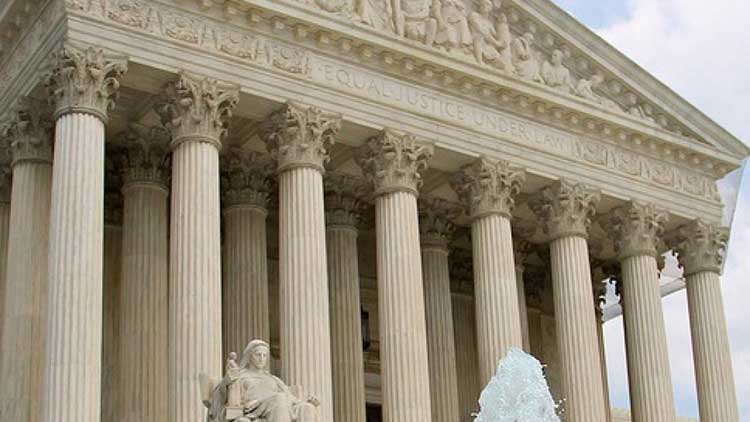Gorsuch's Supreme Court Nomination Vote Held Over

The smarter way to stay on top of broadcasting and cable industry. Sign up below
You are now subscribed
Your newsletter sign-up was successful
The Senate Judiciary Committee vote on the nomination of potential Supreme Court associate justice Neil Gorsuch will have to wait at least another week.
The vote on his and two other nominations had been planned for Monday, but any minority member can delay the vote of any nomination the first time it is on the agenda and chairman Charles Grassley (R-Iowa) indicated the minority had made that request.
Ranking member Dianne Feinstein (D-Calif.) pointed to the failure of Republicans to vote on the nomination of Merrick Garland to the seat opened by the death of Antonin Scalia, the seat Gorsuch was nominated to, as one sore point. During the hearing, she read out the names of some of nominees who got hearings and votes in the final year of a presidency, the reason Republicans gave for not holding a hearing on Garland after Scalia died in February of last year.
She said there was lots of time to vet and vote a nominee.
Another sore spot was the spending of millions of dollars in dark money on advertising either to promote Gorsuch or oppose Garland. "That sends a loud signal to me," she said, a signal that the Republicans ought to take note of as well in understanding the "depth of feeling" on her side about the nominee and the process.
"This [dark money] puts this side, in my view, in just a terrible position," she said, suggesting it creates a situation where the people who spend those tens of millions of dollars in dark money should think twice about it because it might just be "counterproductive."
The committee will hold another business session April 3 at 10 a.m. to vote on the nominations, where Gorsuch's nomination is expected to be approved.
The smarter way to stay on top of broadcasting and cable industry. Sign up below
Gorsuch has been a judge on the Tenth Circuit Court of Appeals, where he has written about his issues with Chevron deference—the Supreme Court precedent for allowing agencies to interpret ambiguous statutes—something Gorsuch has suggested should be left to the courts given separation of powers and equal access issues and points he made in his four-day nomination hearing.
He also signaled during those hearings that he would have at least an open mind toward cameras in the High Court, though he said it was something he had not thought a lot about.
Gorsuch refused to be drawn into a debate about dark money and disclosure of political ads during questioning by Sen. Sheldon Whitehouse (D-R.I.) in his confirmation hearings.
Whitehouse pointed to the $10 million ad campaign being mounted by supporters of his nomination but whose actual backers had not been disclosed. The senator asked Gorsuch if there is a public interest in knowing who was contributing to that campaign. The veteran U.S. appeals court judge responded that if Congress wanted there to more ad disclosure, it had "robust authority" to do so, but that he was not going to be drawn into politics and that it was not his fault if Congress had not passed such a law requiring the disclosure of so-called dark money.
Various Democratic legislative attempts to boost disclosure since the Citizens United decision have failed to gain traction, including with enough Democrats.
Gorsuch did say that there was a value in anonymous speech, which the Supreme Court had found in a case where it concluded that disclosure could be a weapon to help silence opposition.
Contributing editor John Eggerton has been an editor and/or writer on media regulation, legislation and policy for over four decades, including covering the FCC, FTC, Congress, the major media trade associations, and the federal courts. In addition to Multichannel News and Broadcasting + Cable, his work has appeared in Radio World, TV Technology, TV Fax, This Week in Consumer Electronics, Variety and the Encyclopedia Britannica.

